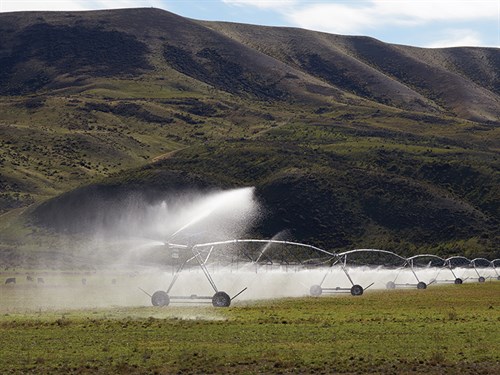Farm advice: why water tax isn't a sensible way forward
Ever since Labour announced it plans to charge a tax on water, our phones have been running hot. Our members have many questions about the new water tax.
We don’t agree with the tax and are concerned about its impact on farmers, their families, and on jobs. The many uncertainties of the tax are creating significant stress among affected farmers in what is already a stressful job.
Over a 10-year period, this tax could cost $650 million to a billion dollars and is levied on just 11,000 families, six percent of all farms.
Labour isn’t sure how much the tax will be or what rate it will be levied at. To address that, we’ve developed a calculator where you can type in your water use and enter a tax rate to see how much the new tax would cost you, because your guess about the new tax rate will be as good as Labour’s. You can try it out at irrigationnz.co.nz.

One of our major concerns with the tax is that it won’t provide funding where it’s needed. Labour says that any water tax raised in a region would stay within the region. The regions with rivers graded as least suitable for swimming will receive little funding.
Auckland currently has the worst rivers in the country, with 62% graded as poor for swimming and none as excellent or good. It would receive around less than one percent of the funding available for clean rivers, as it has little irrigated land.
Northland and Waikato both have more than 40% of their rivers graded as poor for swimming, with Southland not far behind. Again, these regions all have less than one percent of their land area irrigated, so won’t be getting much money to make improvements.
In Canterbury, 62% of the land is irrigated. Labour’s mentioned a $100 million tax, and if that was levied, it would take $62 million of our Canterbury’s economy. There is no way that sum of money could be levied from the region without impacting jobs and not just those on farms. Ultimately, the water tax will increase the cost of production and the country’s international competitiveness.
Farmers who are already spending billions upgrading irrigation infrastructure, complying with environmental legislation, and upgrading the health of their rivers and lakes will have
less to spend.
We don’t think any of these issues have been thought through. It’s a complex subject and there will be many problems to work through in terms of who pays the tax and
who doesn’t. And looking at our history, the most successful efforts to improve river quality have been made by farmers and the local community working together over the long term.
On our IrrigationNZ Facebook page, there’s been a huge discussion around the tax. You can also support IrrigationNZ’s campaign against the tax by joining our organisation at irrigationnz/membership.
We’ll be working to represent your views, keep you updated on how a tax could affect you, and keeping you informed on our campaign progress.
Keep up to date in the industry by signing up to Farm Trader's free newsletter or liking us on Facebook


.jpg)
.jpeg)

.jpg)
.jpeg)
.jpg)
.jpeg)







